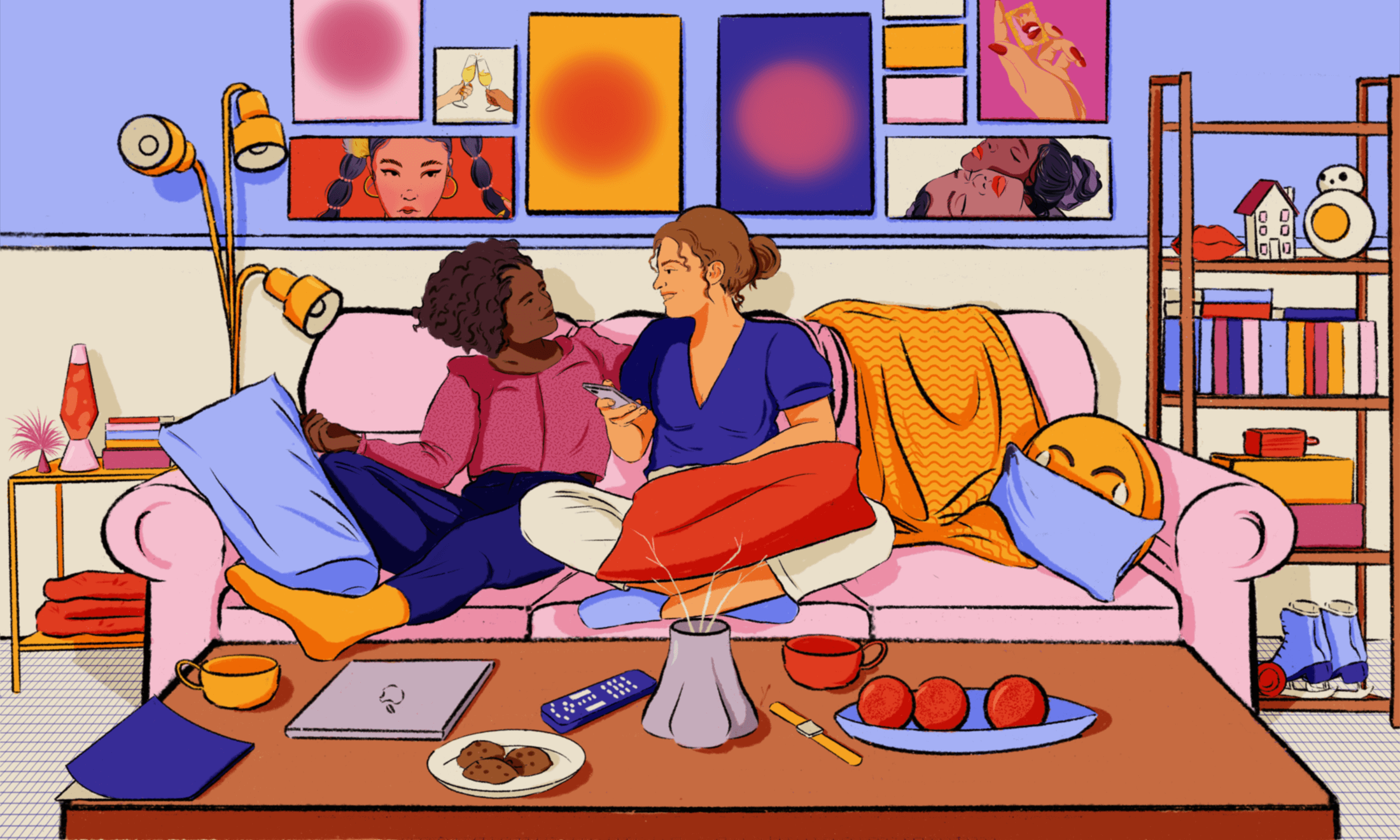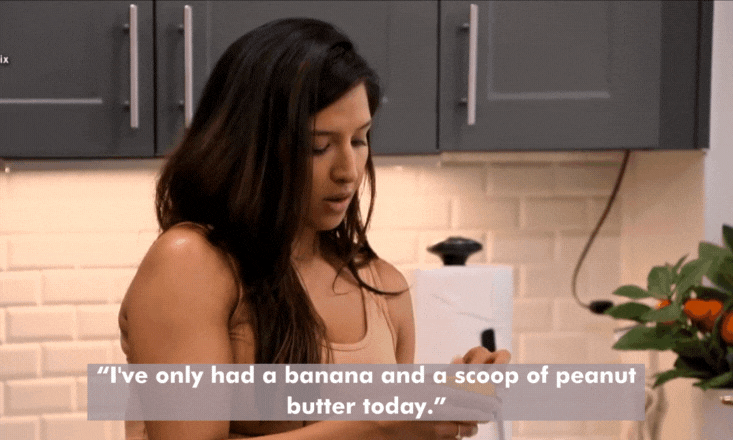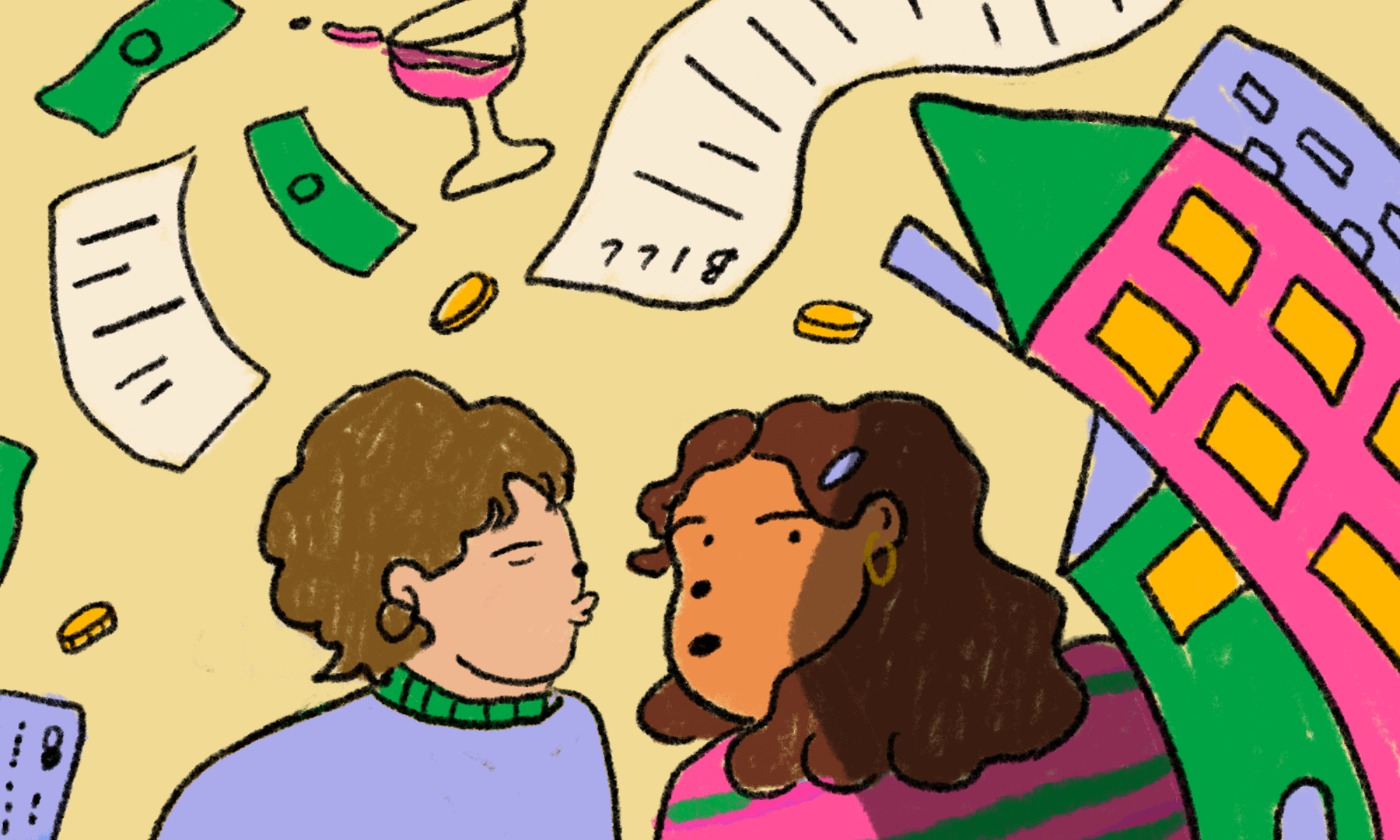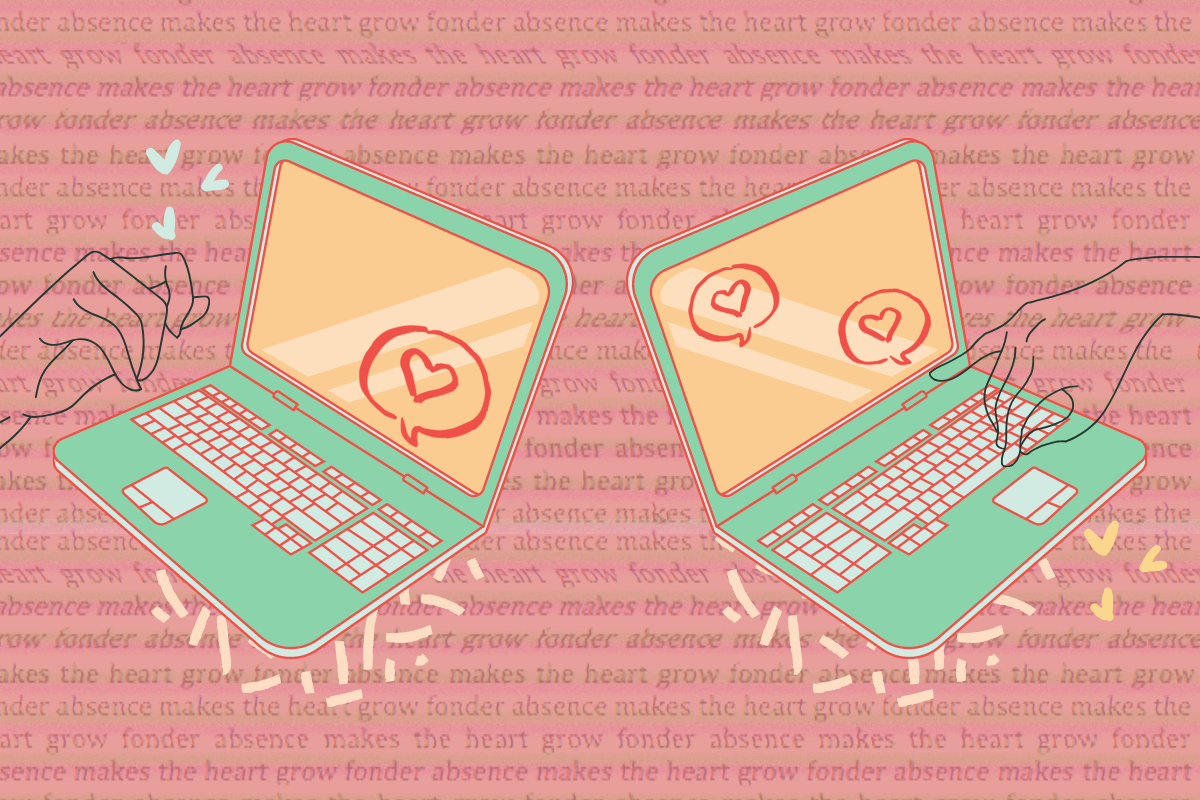
Image via Canva
Lovers in limbo: can we overcome separation under lockdown?
The year is 2045. As you dust the framed screenshot of your Zoom wedding on your mantelpiece, you wonder whether this, the 25th year of lockdown, will be the year that your nipples shrivel up through lack of stimulation, drop off, and roll under the bookcase to join the other dusty, forgotten hopes and dreams that have floundered and ceased to exist. ‘Till death do us part,’ you said on that balmy summer day, a few times, because your janky wi-fi kept freezing the video call.
Leah Cowan
10 May 2020
Lockdown feels like a long, slow trudge. Every tepid government broadcast brags that lockdown is working (for some more than others) and also warns us that the next peak is “just around the corner”. However, another seven days come and go, and last week’s timeframes, spoken with plummy Etonian confidence, slither into an indefinite point somewhere on the distant horizon. The reality is, we’re in this for the long haul. For people separated by the chasm of lockdown from their lovers (or whatever your label of choice is), weathering the storm without your person by your side is another helping of challenge casserole dished out on the plates we’re all spinning. I spoke to the lonely hearts riding lockdown solo, to get a sense of what distanced love or lust in a time of coronavirus truly means.
“I literally have no idea when I’m going to see him next. I guess it could be a couple of months?” ponders Nikki, 33, a Community Development Consultant based in London. She continues, “It is very much a limbo, for both of us”. Nikki and her partner have a long-distance relationship between the UK and Dubai, but usually see each other every two to three months, for at least a week at a time. She hasn’t properly seen him since November 2019. Nikki’s experience emerges as a common story among star-cross’d lockdown lovers: people in long-distance relationships might be used to spending time apart, but they are still struggling with not having a fixed date for the next time they can be together.
“I couldn’t go and see him, even if I wanted to, because there are literally no flights”
Sara, 31, a student based in Scotland, last saw her partner in January 2020. He is based in Guatemala, and they have been together for six years. “I couldn’t go and see him, even if I wanted to, because there are literally no flights”, she tells me. Sara and her partner usually plan when they are going to see each other around their academic timetables, but their scheduling has now been thrown off-course. “If the lockdown relaxes at the end of summer it’s not much good to us, as I have uni which starts again in September […] in that case it would be until December that we wouldn’t see each other, which is longer than we have ever done”, she tells me. Likewise, Jade, 28, who is based in the UK while the person she is interested in is based in the US, also notes that the lack of an endpoint is difficult to reconcile. She remarks that, “I think had it been normal life, we probably would have had [a visit] booked by now, and we would have that in our minds”.
A touchy subject
Separation brings with it the immediate loss of the physical dimension of spending time with someone, in all its forms. Amanda, 31, who is currently working from home as a salesperson in South Africa, tells me that lockdown separation from the person she is dating is “very, very difficult”, as her love languages are “physical touch” and “quality time”. The five love languages, a concept coined by marriage counsellor Gary Chapman to (potentially) better understand how different people express love also include “acts of service”, gifts, and “words of affirmation”. The idea is that we all have a primary and secondary language through which we naturally show love; physical separation undoubtedly makes some of our usual preferred ways of relating particularly difficult.
Jade explains that “touch can be super healing and connecting” and that she misses “the physical intimacy, [such as] being able to touch someone or hug them; if they’re feeling sad, being able to put your hand on their thigh”. Izzy, 24, a furloughed Account Manager based in Birmingham whose partner is in Ashford agrees with this sentiment, adding that, “I miss touching him and physically him being there”. Kara, 25, a journalist based in London laments: “I’m a very tactile person. It feels like a mad-man’s dream to think of being held while that person breathes and lives in front of you, being looked lovingly in the eyes. What a life I lived”.
Connecting from a distance
Some are finding that the conditions of physical separation is forcing them to find new ways to create closeness. Geraldine, 26, an artist based in London met their partner online during the lockdown period; they’ve now been together for a month. Being in a new relationship under lockdown in some ways has benefits – you don’t already have entrenched ways of relating that you now need to transition into a new mode. However, distance can also make it hard to judge how the relationship is “progressing”. As Jade explains about her long-distance lockdown scenario, “I feel like time and pacing is really distorted. It makes you think, oh is this just the quarantine talking, or is this real?”.
Geraldine emphasises the importance, for them, of “creating intimacy digitally”. They give an example of how “he always wakes up earlier […] and he’ll write me a ‘good morning’, tell me how he’s slept, and then write down a little scene of what our morning looks like. So sometimes it’s like: ‘there’s a coffee on your nightstand, big kiss on the forehead, fixing your hair for you’, or something like that”. Eman, 27, a radio broadcaster based in London, tells me that a few weeks ago she and her boyfriend Ed walked for one and a half hours from their respective homes in North and South London, to meet in the middle for a socially-distanced hangout in Regent’s Park. “It was super nice and super lovely”, she remembers. “I was trying to like give him a hug and give him a kiss and he was a bit like ‘get away from me’ because he wanted both of us to be healthy and not risk it, basically!”. Since their park outing, they’ve been connecting over Zoom, WhatsApp, and emails, and having a phone call every night to check in on each other’s day.
“He told me [over FaceTime] that he wants to spend the rest of his life with me, and would I marry him when this lockdown was over?”
Of course, lockdown doesn’t have to mean you have to put your life plans on ice. Amita, 29, is working from home in Gloucestershire after a visit to see her parents became a longer stay when lockdown was imposed. Her partner is currently based in London, and recently proposed on a video call. “That evening I appeared on FaceTime looking scruffier than ever, in joggers, unshowered and looking full lockdown messy”, she tells me. “That was when he chose to tell me he wants to spend the rest of his life with me, and would I marry him when this lockdown was over?”. Even though Amita couldn’t celebrate the occasion in the way she would have liked, she says that it “still felt wonderful. I did point out that I would’ve preferred he picked a day I’d at least showered…but he laughed and insisted that’s ‘true love’!”
Dealing with lockdown away from loved ones or lusted-after ones seems to involve a lot of communication – at least at first. Sara, whose six-year long-distance relationship is also non-monogamous, notes that since the lockdown, she’s been speaking more regularly with her partner, and that this is possibly because everything feels “a bit more stressful and a bit more uncertain”. She tells me that being in an open relationship doesn’t necessarily make the situation easier, but she does think that their shared approach of “respecting that there will always be parts of the other person that you can’t access or can’t understand” probably helps at this time, and works for them.
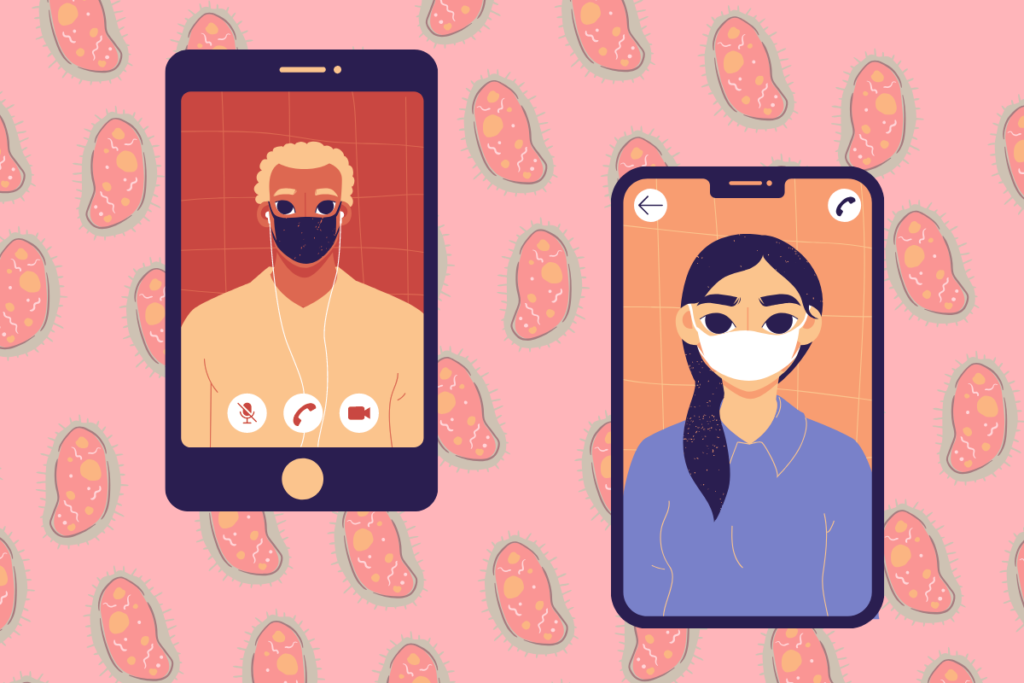
Protecting our energy
Recognising that people need different things from each other in terms of frequency and type of interactions felt like a step in the right direction for some lovers; as Kara explains “maybe nudes make some people feel close, maybe others just want to be FaceTimed while they walk around on their state permitted daily exercise”. A lot of the people I spoke to mentioned devising routines or schedules for interacting with their person. Some people felt that establishing boundaries around their time, and agreeing when they would call or FaceTime eased the pressure (or urge) to be constantly communicating. It also meant that they had new things to talk about. beyond sharing the stresses of the day and detailing everything they had eaten.
Without clear boundaries, the constant obligation to be communicating can leave us with little juice for social or romantic chats. For Nikki, her new work from home setup means that she is now expected to do hours of video calls every day, which she is trying to balance with connecting with friends, and hour-long conversations with her partner each evening as part of their usual routine. All of this involves being in front of a screen. She tells me: “I just can’t do it. I really need a lot of solo time, and so the choice is to either compromise my work which I can’t really do, because I need to get paid, or cut back on something […] it’s hard because now that dedicated energy and effort with my partner for an hour gets a bit diluted because by the time I get to being on the phone with him I’m just a bit depleted”. Feeling like you’re running low on resources can also come with a large helping of guilt if you’re struggling to maintain a pre-lockdown level of social and romantic interactions.
“It’s been refreshing to be able to spend some more time on myself, both physically and mentally”
Thanks (or no thanks) to the internet, it’s easy to start comparing your lockdown lifestyle to other people, and wondering: if we’re not sending each other care packages, or starting a two-person virtual book club, are we even in a relationship? Ultimately, we’re all doing the best we can in the context of a global pandemic, and it’s entirely necessary to take time for yourself where you can. “It’s been refreshing to be able to spend some more time on myself, both physically and mentally” explains, Sofia, 22, who is working from home in London while her partner is in Nottingham working for the NHS. Being separated from a loved one can bring a whole heap of angst, but for some it gives us space to focus on our own needs.
Finding joy in the darkness
As the moon continues to spin around the earth, and weekdays slip into weekends without much distinction, many separated lockdown lovers are trying to retain a sense of fun and spontaneity to counteract the challenges of time apart. For Sofia’s recent third anniversary with her partner they had a virtual date, where they cooked the same meal over FaceTime: “we had roasted pesto chicken and peppers with broccoli – and some wine too!”. Jade has also arranged evenings where they both dressed up, bought wine, and lit candles to reenact a proper date night. She also proactively created a conversational vibe that felt different from their normal dialogue. She tells me, “there’s a list on Google of 100 date questions for your partner, and I just asked a few of those. It was nice to have a funny kind of ‘dating structure’”. Asking and answering questions that dig a little deeper, or push you outside of the realm of your current reality can be a joyful or intriguing form of escapism. Remembering that there was life before lockdown and that your hopes and dreams for the future are still real and valid, can be a positive way to bond with someone who feels far away.
“The idea should be to create and construct nudes that could be hung up in the Louvre”
For many people, dating doesn’t just end when the check is settled at dinner. Redefining physical intimacy over distance also involves taking the sexual aspect of a relationship into a new realm. Kara tells me that she has been trying to outdo herself with nudes because “at the end of the day your tits always look the same”, and that the idea should be to create and construct nudes that could be “hung up in the Louvre”.
Geraldine advises that if you’re sexting someone you have already had sex with, you could recall a hookup that you’ve had, and identify the things you liked. “That way you can start from a point of something that’s already happened,” they tell me, “and also you can think about what you like yourself”. Jade also speaks about recreating a virtual version of her preferred sexual dynamic. “I’m a tenderqueer,” she explains. “So I like to intersperse my sexting with deep questions, almost like pillow talk […] I guess taking a slower approach of “oh we can say a little bit and then switch back and forth” rather than being like ‘yeah we’re fucking, fuck-fuck-fuck!’”.
Loving and lusting across distance seems to be a new feature of many people’s lives, and we’re likely to be stuck in this mode for a while. They say that absence makes the heart grow fonder, but in this digital age, there are also a multitude of workarounds at our fingertips to make separation feel a little less lonely. When we can’t communicate through physical touch and presence we can traverse the chasm of physical distance by building other kinds of bridges. We can reach out to each other through shared interests, values, and even visions for the post-Covid world. Community responses to the global pandemic show us that even in these difficult times we can care more, and connect more, not less. After all, a government agenda of carelessness and not-caring is what has compounded inequality even further under coronavirus. Maybe, if we can weather this storm together, nurturing love, lust, and our connections to ourselves, there’s a chance that our next real embrace will feel all the sweeter?



